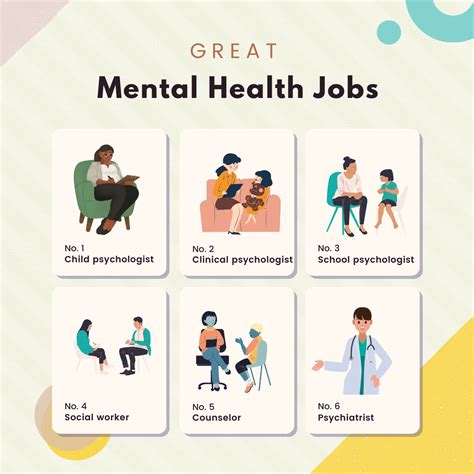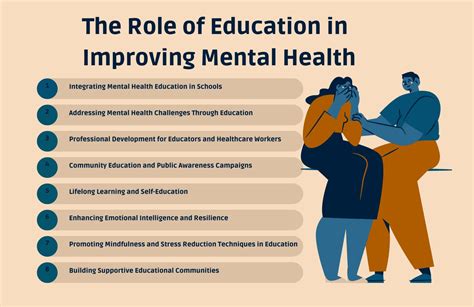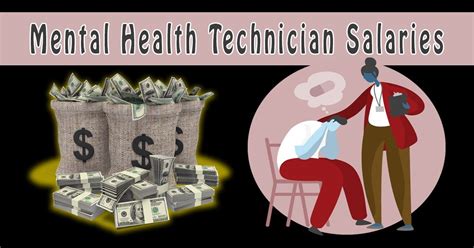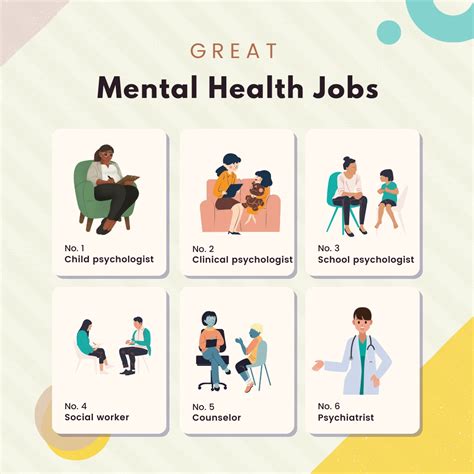Intro
Unlock a fulfilling career in mental health and explore various job opportunities in this growing field. Discover the roles of counselors, therapists, psychologists, and social workers, and learn about emerging fields like mental health coaching and teletherapy. Find out how to get started and make a meaningful impact in the lives of others.
The field of mental health is rapidly growing, and with the increasing awareness of the importance of mental well-being, the demand for professionals in this field is on the rise. A career in mental health can be highly rewarding, as it allows individuals to make a positive impact on people's lives and help them navigate through challenging times. In this article, we will explore the various career opportunities available in mental health, the skills and qualifications required, and what you can expect from a career in this field.
Mental health professionals work with individuals, families, and communities to promote mental well-being, prevent mental health disorders, and provide treatment and support for those affected by mental illness. The field of mental health is diverse, and there are many career paths to choose from, depending on your interests, skills, and qualifications.

Types of Mental Health Careers
There are many different types of careers in mental health, each with its own unique role and responsibilities. Some of the most common careers in mental health include:
Clinical Psychologists
Clinical psychologists work with patients to assess, diagnose, and treat mental health disorders. They use a variety of techniques, including counseling, therapy, and behavioral modification, to help patients manage their symptoms and improve their mental well-being. Clinical psychologists often work in private practice, hospitals, or clinics, and may specialize in areas such as child psychology, neuropsychology, or forensic psychology.
Counselors and Therapists
Counselors and therapists work with patients to help them cope with mental health issues, such as anxiety, depression, or trauma. They use a variety of techniques, including talk therapy, cognitive-behavioral therapy, and psychodynamic therapy, to help patients understand and manage their emotions and behaviors. Counselors and therapists may work in private practice, schools, hospitals, or community mental health centers.
Psychiatrists
Psychiatrists are medical doctors who specialize in the diagnosis and treatment of mental health disorders. They use a combination of psychotherapy, medication, and other treatments to help patients manage their symptoms and improve their mental well-being. Psychiatrists often work in hospitals, clinics, or private practice, and may specialize in areas such as child psychiatry, addiction psychiatry, or forensic psychiatry.
Psychiatric Nurses
Psychiatric nurses work with patients to provide care and support for mental health issues. They may work in hospitals, clinics, or community mental health centers, and may specialize in areas such as pediatric psychiatry, geriatric psychiatry, or addiction nursing.
Social Workers
Social workers play a critical role in the mental health field, working with patients and families to provide support, guidance, and advocacy. They may work in hospitals, clinics, schools, or community organizations, and may specialize in areas such as child welfare, gerontology, or mental health policy.

Skills and Qualifications
To pursue a career in mental health, you will need to possess certain skills and qualifications. These may include:
Education and Training
Most mental health careers require a degree in a relevant field, such as psychology, social work, or nursing. Many mental health professionals also pursue advanced degrees, such as master's or doctoral degrees, to specialize in a particular area or to work in private practice.
Licensure and Certification
Many mental health careers require licensure or certification, which typically involves passing a written exam and completing a certain number of hours of supervised experience.
Communication and Interpersonal Skills
Mental health professionals must possess strong communication and interpersonal skills, as they work closely with patients, families, and other healthcare professionals.
Empathy and Compassion
Mental health professionals must be able to empathize with patients and provide compassionate care, even in challenging situations.
Cultural Competence
Mental health professionals must be culturally competent, able to work with patients from diverse backgrounds and cultures.

Work Environment and Salary
Mental health professionals work in a variety of settings, including hospitals, clinics, private practice, schools, and community organizations. The salary for mental health professionals varies depending on the specific career, location, and level of experience.
Work Environment
Mental health professionals often work in fast-paced, dynamic environments, where they must be able to think critically and make quick decisions.
Salary
The salary for mental health professionals varies widely, depending on the specific career, location, and level of experience. According to the Bureau of Labor Statistics, the median annual salary for mental health professionals is around $50,000, although some careers, such as psychiatry, can command much higher salaries.

Conclusion
A career in mental health can be highly rewarding, as it allows individuals to make a positive impact on people's lives and help them navigate through challenging times. With many different career paths to choose from, mental health professionals can work in a variety of settings, from hospitals and clinics to private practice and community organizations. By possessing the necessary skills and qualifications, mental health professionals can provide compassionate care and support to patients and families, helping them to achieve optimal mental well-being.

We hope this article has provided you with valuable information about the various career opportunities available in mental health. If you are considering a career in this field, we encourage you to explore the many different options available and to seek out guidance from professionals in the field.
What are the different types of mental health careers?
+There are many different types of mental health careers, including clinical psychologists, counselors and therapists, psychiatrists, psychiatric nurses, and social workers.
What skills and qualifications do I need to pursue a career in mental health?
+To pursue a career in mental health, you will need to possess certain skills and qualifications, such as education and training, licensure and certification, communication and interpersonal skills, empathy and compassion, and cultural competence.
What is the work environment like for mental health professionals?
+Mental health professionals often work in fast-paced, dynamic environments, where they must be able to think critically and make quick decisions.
